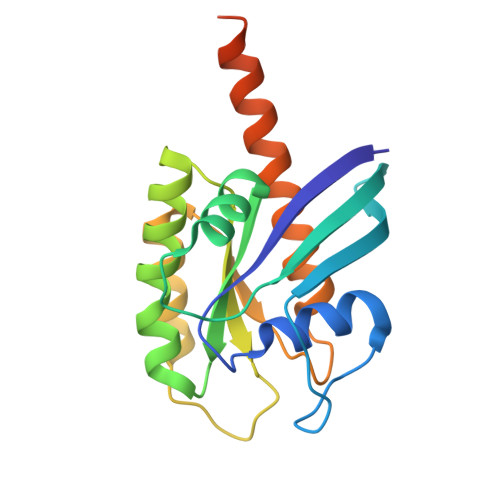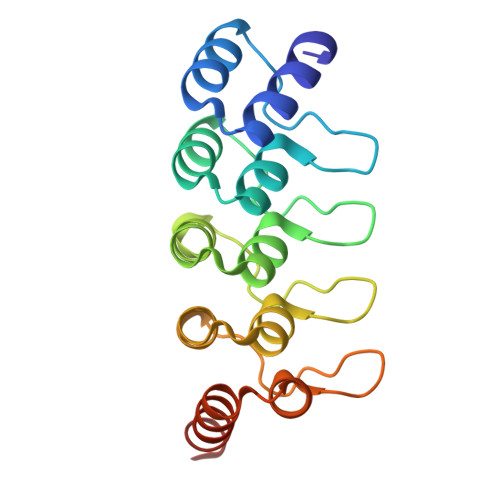A nucleotide-independent, pan-RAS-targeted DARPin elicits anti-tumor activity in a multimodal manner.
Kapp, J.N., Verdurmen, W.P.R., Schaefer, J.V., Kopra, K., Nagy-Davidescu, G., Richard, E., Nokin, M.J., Ernst, P., Tamaskovic, R., Schwill, M., Degen, R., Scholl, C., Santamaria, D., Pluckthun, A.(2025) Mol Oncol
- PubMed: 40517320
- DOI: https://doi.org/10.1002/1878-0261.70061
- Primary Citation of Related Structures:
9GTK - PubMed Abstract:
The KRAS oncoprotein is a frequent tumor driver in lung, pancreatic, and colorectal cancers and has proven to be a challenging pharmaceutical target. The first KRAS-targeted therapeutics are now being tested in clinical trials but the consequences of preferentially targeting the GDP or GTP state of KRAS and the relevance of RAS nanoclustering have remained unclear. Here we report a Designed Ankyrin Repeat Protein (DARPin) that recognizes the RAS switch I/II region with low nm affinity, independently of the nucleotide bound (GDP- or GTP state). This DARPin, termed '784_F5', occupies the effector recognition lobe, resulting in interference with SOS-mediated activation, RAS downstream effector interactions, and KRAS nanoclustering. Consequently, this anti-RAS DARPin potently blocks downstream signaling, leading to a strong reduction in proliferation and anchorage-independent growth in RAS-dependent cell lines. We showed that the expression of '784_F5', the pan-RAS, nucleotide-independent DARPin can lead to tumor regression in a colorectal xenograft model which may hold promise for further investigation and development.
Organizational Affiliation:
Department of Biochemistry, University of Zurich, Switzerland.























